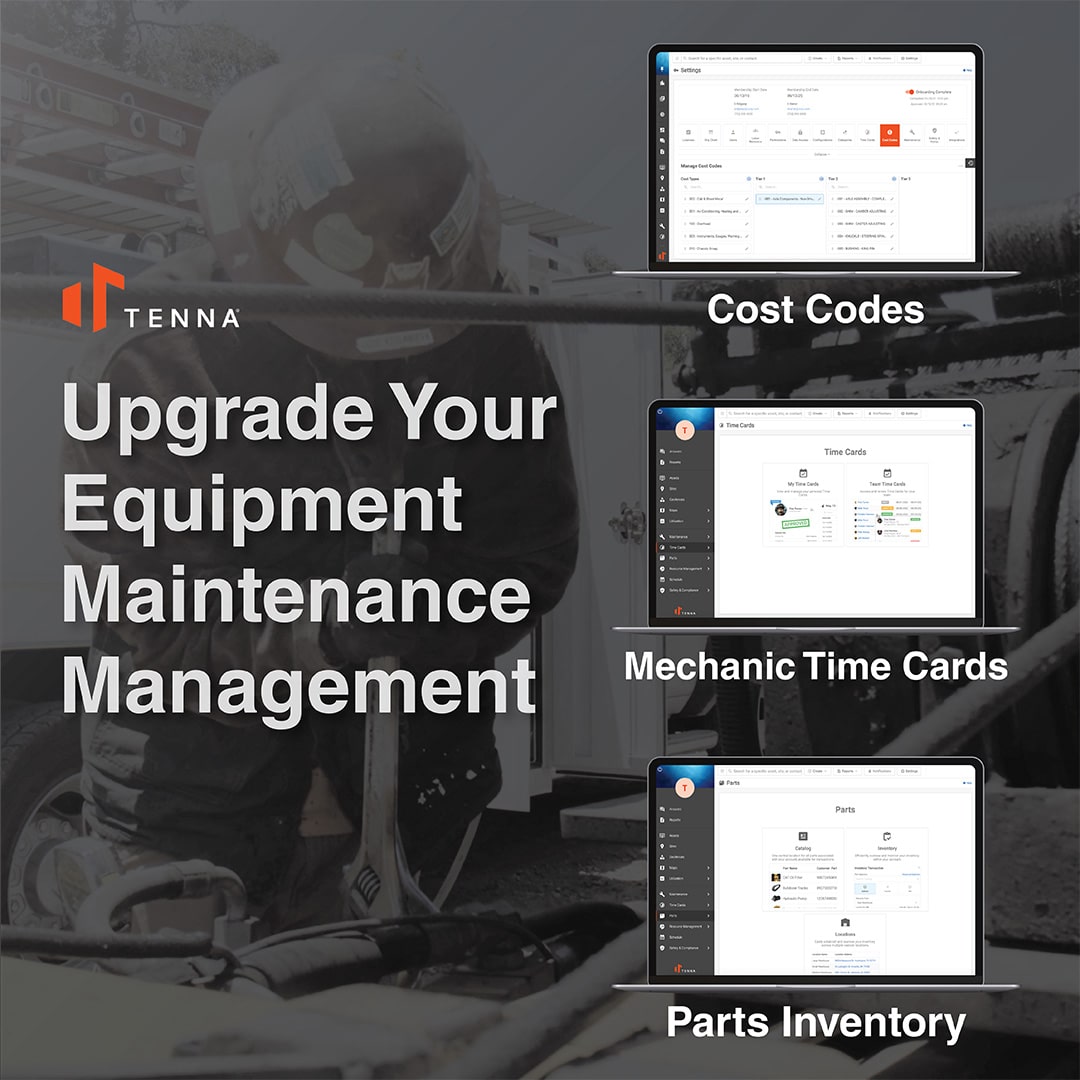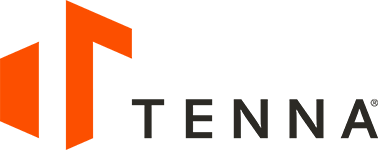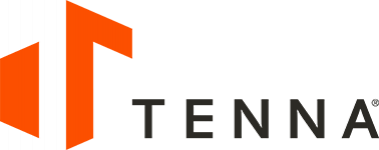New Hope, PA – February 22, 2024 – TENNA, the construction technology platform that revolutionizes equipment fleet operations, announces the release of three new products to improve contractors’ ability to monitor inventory of parts, hours of labor, and the costs associated with each in relation to their equipment maintenance management.

Tenna kicks off 2024 with the release of three new software solutions designed to support construction equipment maintenance management, including Cost Codes, Mechanic Time Card and Parts Inventory Management. The purpose of these products – which, like all of Tenna’s vertically integrated platform, are designed to work together – is to assist contractors in being more flexible and have better visibility around costs associated with repairs, inventory and labor management.
“At the end of the day, these products will help construction businesses analyze true data around owning, operating and maintaining their heavy construction equipment, so they have visibility into how they are spending time and money around maintenance activities. This insight can help them consider ways to optimize their owned fleet and make better buy/sell decisions,” says Austin Conti, Co-Founder and CEO of Tenna.
The Cost Codes product is Tenna’s latest milestone in their mission to provide comprehensive and meaningful construction fleet operations management. With this new addition, contractors can discover how much time and money they are spending on repairs and damages by associating custom cost codes (directly aligned with their ERP/Accounting systems) with their Preventative Maintenance services, Maintenance Requests, Work Orders and Mechanic Time Cards within Tenna. This helps to better facilitate the classification of costs and track spend against labor and materials.
“Building off Tenna’s existing Maintenance and new Mechanic Time Card products, Cost Codes will allow contractors to track internal and external spend on parts and labor against repairs and other routine equipment maintenance,” says Jose Cueva, Co-Founder and VP of Product at Tenna. “Allowing Tenna users to create and maintain their own custom codes provides the opportunity to align with their existing ERP or accounting system and manage costs between their two key systems cleanly.”
Tenna designed the Cost Codes structure to be custom-built per account and flexible up to six levels deep, allowing contractors to choose how to report on costs related to time, adding parts, etc., and empowering personnel to code easily. This product is permission based for greater control and, like the overall Tenna platform, is not restricted to a number of users; all employees with login access to Tenna can leverage this functionality without an additional cost. Cost Codes provide a comprehensive understanding of maintenance finances with improved cost tracking and transparency, facilitate informed decision-making, streamline resource allocation, and help construction businesses achieve increased profitability and efficiency.
Tenna’s new Mechanic Time Cards allow mechanics to easily capture their time against work orders and maintenance requests. With these flexible and efficient digital records, labor is accurately recorded under individual costs in Tenna and can be streamlined into the payroll system. This solution is impactful for contractors with their own shops to track labor productivity and distinguish between overhead and actual time worked on an asset. They also are suited for those who may involve apprentice mechanics and would benefit from multiple levels of approvals – Tenna supports up to three, with flexibility for a single, global approval if desired.
Tenna’s Mechanic Time Cards are flexible for managers to configure and frictionless for the mechanic end user.
Managers can create custom timecards with flexibility for the entire crew. They can set class codes to identify classes of work, set labor cost and billing rates for each, define interval configurations and time types such as standard, overtime, lunchbreak, etc., require one or multiple levels of approval, and more. “This will make a difference for contractors because it’s up to them how detailed they want to be in breaking down tasks,” says Cueva.
User friendly e-signatures, digital clock out, and a simple interface embedded into maintenance requests and work orders (available on mobile, tablets, and web browsers) makes it easy for mechanics to capture time and submit on the fly without ever leaving the maintenance section of Tenna. Users can also cost code individual time entries based on their configurations. Cueva explains, “If a mechanic is working on a repair for half a day and that repair needs to be cost coded specifically, and in the afternoon they are doing cleanup work in the yard or something else, they can choose the right cost code and bill-to information.”
Not only does Tenna’s Mechanic Time Card solution make it easier than ever to control costs by understanding the time and labor associated with frequent tasks, it also provides insights into mechanic productivity and helps construction businesses capture how much something costs to repair and maintain, which has been a unique challenge and gray area for many contractors.
Finally, Tenna’s new Parts Inventory Management product makes it easy to organize tracking for parts, helps efficiently schedule preventative maintenance based on part availability to minimize downtime, and provides control over inventory issues that can delay projects. With Parts, contractors can manage inventory, warranties and costs associated with parts they need and/or regularly use. Managers can see a list of parts added to a work order to track spend against that work and see what parts have been used historically for each asset in their fleet.
The Parts Catalog is a centralized, smart database of all the parts contractors care to keep reference of. Whether they keep parts in stock or buy on-demand, contractors want to have a centralized, correct part for each item to ensure they are buying at the right price and from the right vendor across their organization. Tenna allows contractors to add multiple optional data points in the Parts Catalog, so it can be as robust or simple as they would like and fit into their existing workflows.
When it comes to Inventory Management for contractors who do inventory parts in one or more shop or warehouse locations, they can maintain visibility in Tenna for parts in stock and track them, their individual prices, vendors and details by location while keeping the part number intact to remain centralized in the catalog. They can also capture transactions in Tenna when a part is added/subtracted to/from a Tenna work order, maintenance request, or asset directly, and users will be able to see how many they have in-hand. By reducing wait times and delays caused by missing or misidentified parts, mechanics and warehouse managers will spend less time searching, and more time completing tasks while reducing unnecessary machine downtime.
More advanced and unique elements of the Parts product include seeing suggested parts for maintenance requests mechanics are assigned to alongside the parts they have added to a work order already, and measuring the life of a part committed to an asset in time or utilization. With this visibility, contractors can track how much time or how many hours or miles a part has been living on an asset, giving clear records about when, for example, a tire was replaced in terms of date and how many hours or miles were on the machine, alongside whether or not it is still under warranty based on when the tire was added, and how much it drove. According to Cueva, “This information further assists the contractor by giving them the ability to capture the average lifetime of a part, and to compare which brands or types of parts live longer on an asset on average than another, which is a unique insight.”
What makes Tenna’s Parts offering unique is the fact that it leverages Tenna’s base platform telematics offerings to actively measure the life, warranty and wage of individual parts. This is part of Tenna’s commitment to providing a total solution to contractors within their vertically integrated platform.
Tenna is excited to round out their existing Maintenance suite with these new products. Just like all of Tenna’s offerings, these products went through several discovery sessions and iterations to arrive at the final products being released to existing Tenna customers. Tenna’s commitment to helping construction companies grow and succeed while improving safety, productivity and financial visibility is stronger than ever. These new products, along with recent enhancements to existing Tenna functionality, are just a glimpse of everything in store for the coming year.
About Tenna
Backed by over 100 years of experience in the construction industry, Tenna was built to revolutionize construction equipment and fleet operations. Tenna is the only equipment management system built exclusively for the construction industry and tailored to solve the specific challenges it faces with GPS-based locations and actionable data and reporting. From heavy iron; to vehicles and mid-sized equipment; to attachments, small tools, and consumables, Tenna provides a complete view of entire construction equipment fleets on one platform that also integrates with a variety of business ERPs and project management systems. In the field, Tenna users gain more control over equipment utilization, master job costing, and better oversight over safety and compliance needs. At the office, Tenna users have full visibility over and improved communication with the field, shop, and between departments. The result is the power to make informed decisions, gain more business, and complete jobs more productively and profitably. For more information, visit www.tenna.com.

